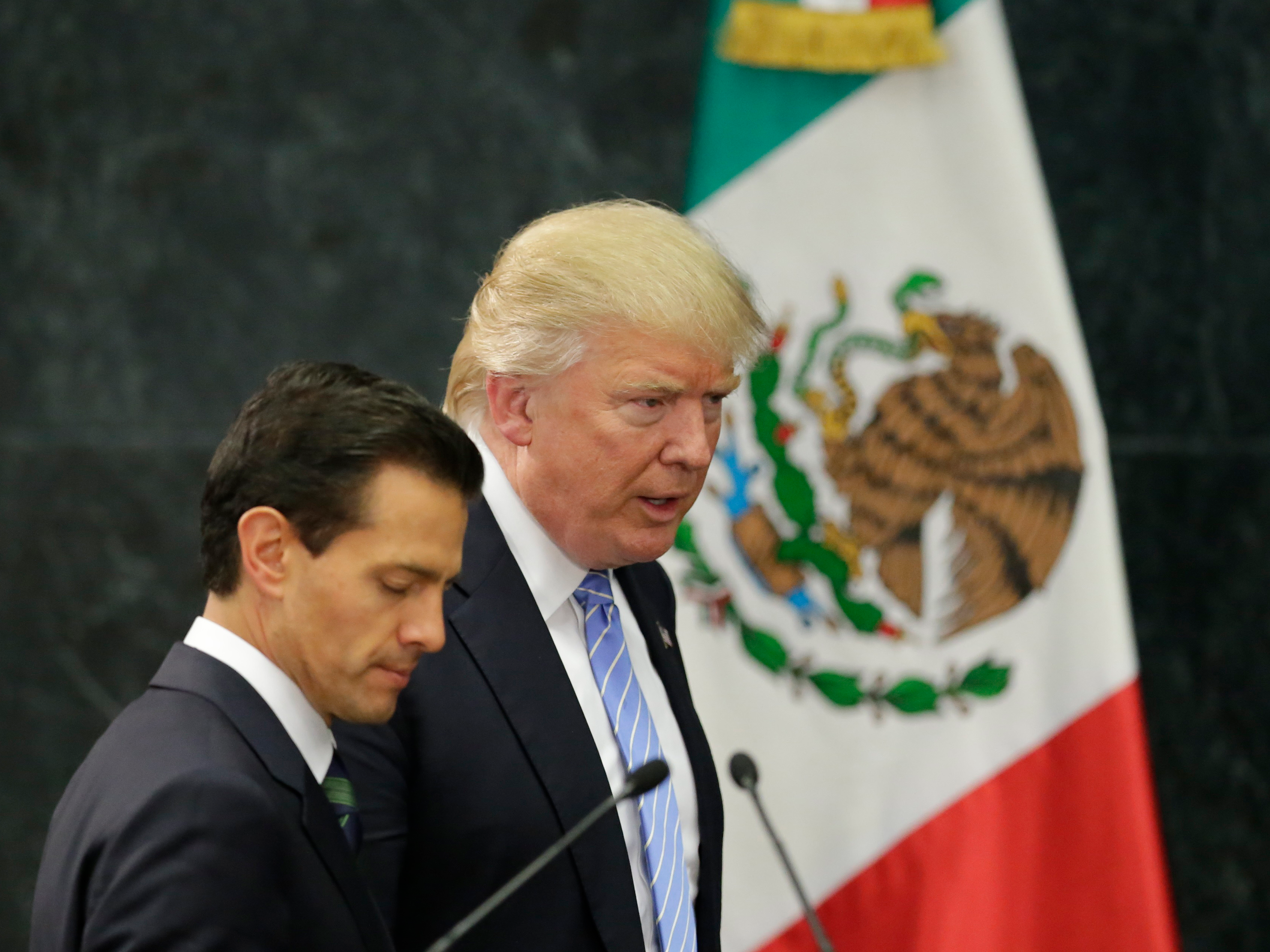Throughout Donald Trump’s campaign that culminated Wednesday in his election as president, one constant was a stream of attack by him against Mexico. In addition to his promise to build a wall to prevent immigrants from crossing the US-Mexico border, Trump repeatedly said Mexico was killing the US in trade.
He pointed to Ford opening a plant in Mexico as one way Mexico was taking advantage of the North American Free Trade Agreement, which he on numerous occassions has called a “disaster.” Trump has repeatedly promised to renegotiate a better deal, and he has even suggested placing a 35% tariff on trade with Mexico.
On the surface, this sounds like a disaster for Mexico, considering that 80% of Mexico’s exports are to the US.
But there is one big problem with Trump’s promises. Such a policy would be vehemently opposed by corporate America.
“It is important to understand that more than half of all visible trade between the two countries is due to corporate supply chains, in which goods are manufactured in the US, but assembled in Mexico,” the research firm Pavilion said.
"That is why, although US imports from Mexico are growing, imports of manufactured wares originating from Mexico are declining."

Pavilion believes that is why there is "limited scope" for further depreciation of the Mexican peso.
And at least one Wall Street bank seems to agree.
'Watered down'
In a note to clients sent out on Wednesday, Alexis Milo, HSBC's chief economist for Mexico, suggested that the incoming government is likely to decide between two different approaches to Mexico: mainstream conservative and populist overhaul.
As for what's more likely, Milo believes the mainstream conservative approach will win out.
"This scenario envisages Republican control of Congress in which some of the hard proposals to increase tariffs and massive deportation plans are toned down by conservatives that are in favor of trade and want to maintain a stable relationship with Mexico," Milo said.
Milo went on to say he expects trade relations between the US and Mexico "to remain relatively strong, as in the end both countries are favored by their current commercial links."
As for how Mexico is responding to a Trump presidency, the country's central bank held an emergency meeting on Wednesday in response to the peso crashing to a record low of worse than 20 per US dollar. The Bank of Mexico ended up keeping policy on hold, but according to Capital Economics Latin America economist Adam Collins, the central bank is likely to hike rates by a modest 50 basis points to 5.25% as the peso is showing signs of stabilizing.
"The accompanying statement is likely to leave all options on the table (including direct intervention in the foreign exchange market) should the peso come under renewed pressure," Collins wrote.


